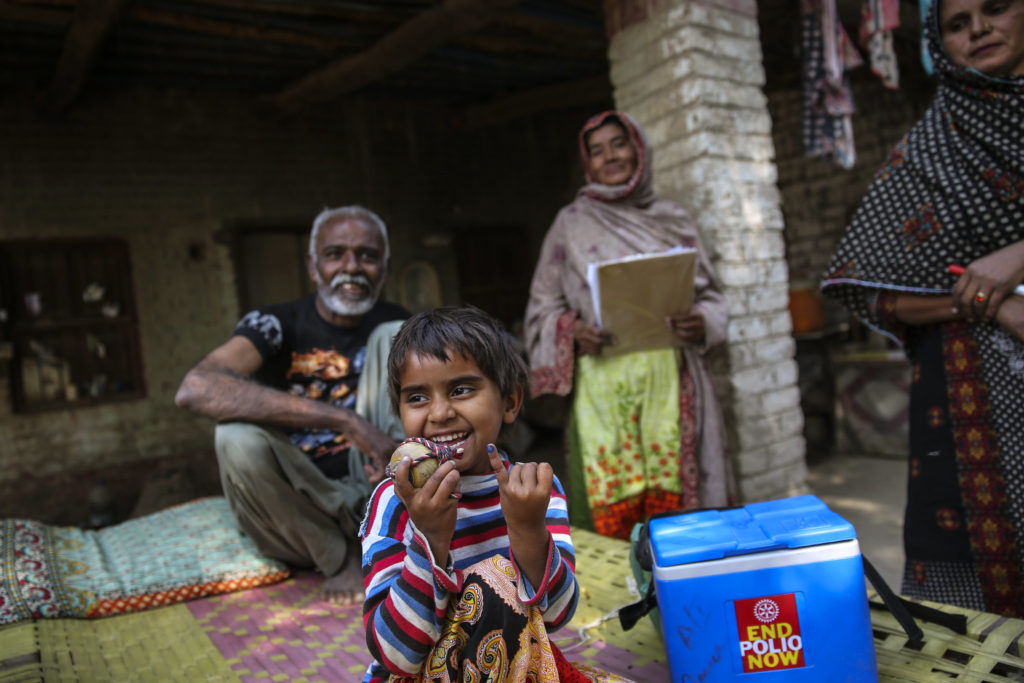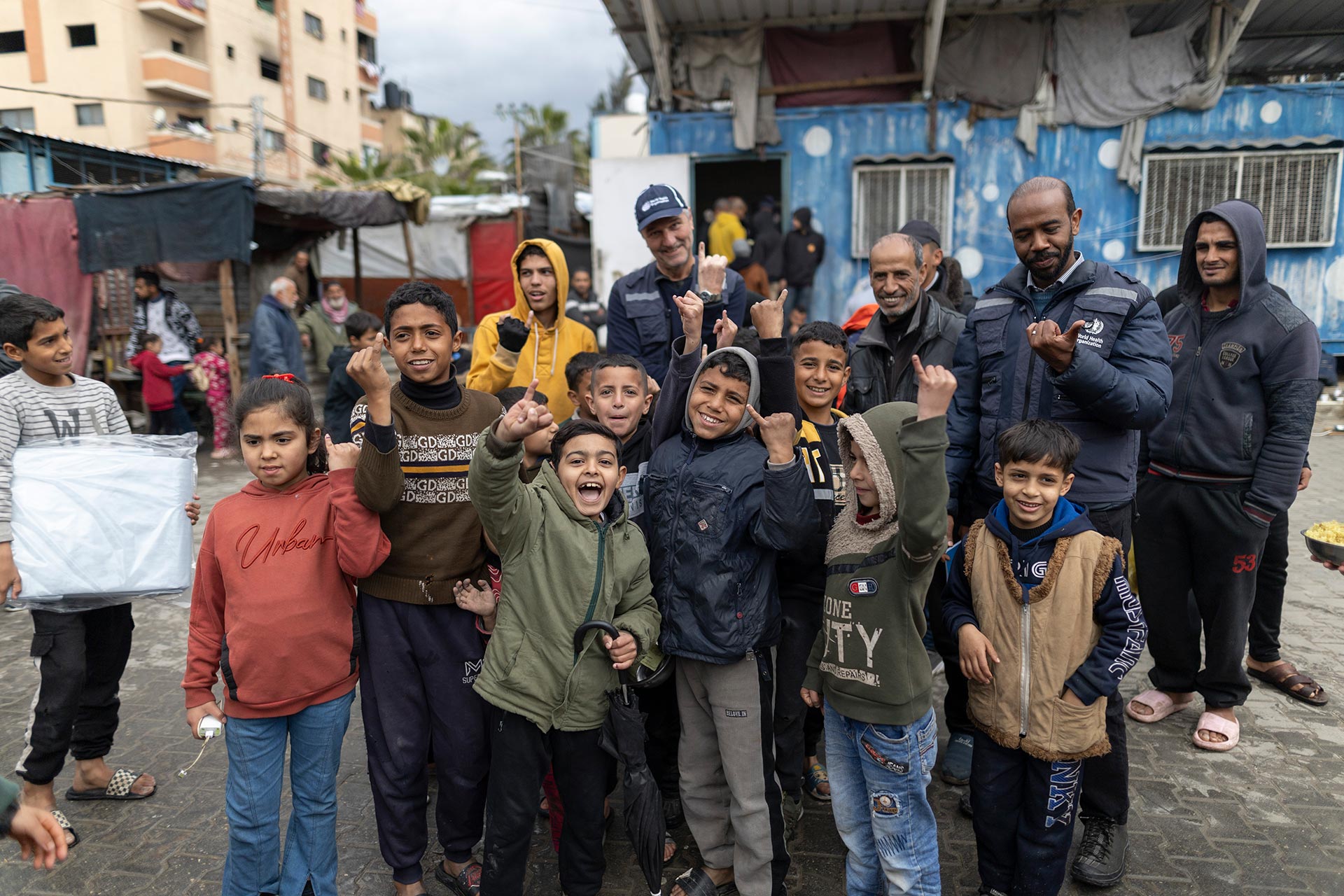
Health ministers from across the Eastern Mediterranean Region and Global Polio Eradication Initiative (GPEI) partners convened virtually on 27 April for the 13th meeting of the Regional Subcommittee for Polio Eradication and Outbreaks, reaffirming the Region’s collective solidarity to end polio, the longest running Public Health Emergency of International Concern.
Convened by WHO’s Regional Director for the Eastern Mediterranean and co-chaired by the health ministers of Qatar and the United Arab Emirates, the Subcommittee has, over the past 4 years, become a pivotal regional platform for rallying support and concerted actions to reach zero polio.
Despite significant progress, more than 100 children have been paralysed by wild poliovirus in Afghanistan and Pakistan over the past year. Variant poliovirus outbreaks continue in Djibouti, Gaza and Somalia and vaccination campaigns have been suspended in the northern governorates of Yemen since 2021. Conflict, humanitarian crises, insecurity and climate change have added complexity to the epidemiological situation.
H.E. Mansoor bin Ebrahim bin Saad Al Mahmoud, Minister of Public Health of Qatar and co-Chair of the Subcommittee, said: “For us, in the Eastern Mediterranean Region, polio is not just the longest running Public Health Emergency of International Concern but one of the most important regional public health priorities. Any threat to the health and well-being of children is a threat that must be eliminated.”
Speaking on behalf of H.E. Abdul Rahman Mohammed Al Oweis, United Arab Emirates Minister of Health and Prevention and co-Chair of the Subcommittee, H.E. Hussain Abdul Rahman Al Rand, Assistant Undersecretary for Health, acknowledged the investments and concrete steps taken to strengthen preparedness and response capacities. “At the Regional Committee in Doha last October, we all pledged our commitment to a polio-free Region. Our solidarity is unparalleled and so is our resolve. But now, we need to act with more urgency than ever before. Together we can change the future and consign polio to history.”
In response to cuts to the GPEI’s budget and their impact on essential health services, including childhood immunization, WHO has implemented emergency measures to ensure continuity of critical programmatic activities in polio-endemic and outbreak countries.
In her remarks, Regional Director for the Eastern Mediterranean Dr Hanan Balkhy acknowledged the evolving global health financing situation and highlighted how generous financial support from the Kingdom of Saudi Arabia is critical to sustaining the programme.
Speaking on behalf of H.E. Fahad bin Abdurrahman Al-Jalajel, Minister of Public Health, Kingdom of Saudi Arabia, H.E. Abdullah Assiri, Deputy Assistant Minister for Preventive Health said: “The Kingdom of Saudi Arabia recognizes the historic opportunity before us to eradicate the second disease in history. Our recent donation to the GPEI is a step forward in supporting this auspicious goal – a promise to future generations that polio is no longer a threat.”
Health ministers or their representatives from Iraq, Kingdom of Saudi Arabia, occupied Palestinian territory, Oman, Pakistan, Qatar, United Arab Emirates and Yemen attended the meeting. The discussion underscored intensified efforts across the Region to reach zero dose and hard to access children to protect them against polio and other preventable diseases.
The Subcommittee also issued a statement on stopping wild poliovirus transmission in Afghanistan and Pakistan, urging Member States, donors and the international community to continue their support as the last 2 endemic countries double down on efforts to end transmission.
About the Regional Subcommittee on Polio Eradication and Outbreaks
The Regional Subcommittee on Polio Eradication and Outbreaks, established by the World Health Organization, focuses on coordinating and supporting efforts to eradicate polio and respond to outbreaks within the Eastern Mediterranean Region. The Subcommittee provides a platform for health ministers and stakeholders to share information, strategies and resources to achieve a polio-free world.



